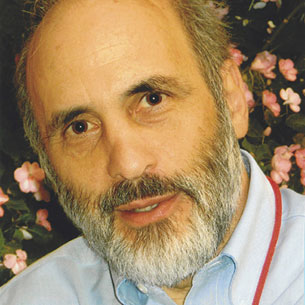In June, I will become the 47th president of ASCO. This is an intimidating prospect for anyone—ASCO is a complex organization representing multiple subspecialties from all over the world. The membership now exceeds 30,000 individuals from private practice, academia, research, industry, and advocacy, and a growing contingent from the international community. So, who wouldn’t be daunted by the prospect of leading our Society? To say nothing of the issues which face our specialty today: The battles over health care reform and the uncertain impact on our professional practices; the budgetary challenges that confront our nation and the world as we emerge from an economic meltdown and that threaten to subvert the research enterprise as well as the capacity of our countries to afford to pay for the medical care of their citizens; and unforeseen challenges that will certainly confront us during the next year.
Yet, this could not be a more exciting time to be an oncologist. Concepts that were science fiction during my training are becoming part of our everyday practice. Understanding cancer on the molecular level, identifying mutations that underpin different cancers, and the prospect of targeting these mutations as specific therapy are no longer futuristic notions. We already have proof of principle in the development of a number of targeted agents that have revolutionized the care of several diseases. This emerging paradigm of oncology with the vision of treating each patient according to the molecular profile of his/her tumor in conjunction with an understanding of his/her “pharmacogenome” to personalize therapy is too alluring to allow us to be derailed or even delayed by the economic realities of the present.
Thus, there is a lot going on. Anyone would (or should) be a bit anxious about fulfilling the role or even of keeping all of the issues straight. The job is particularly intimidating for a pediatrician in academia who must confess a certain level of unfamiliarity with some of the issues on the horizon. But ASCO is an amazing organization with a highly competent staff; it would be presumptuous to assume that one president will have a major influence on the direction of our Society. Our initiatives are well planned over years, and the leadership and staff of ASCO will keep things moving along. I will do my best to keep the wheels turning and serve as a spokesman for what we hope to achieve.
Pediatric oncology is, perhaps, the poster child for what can be accomplished to improve the outcome of our patients. Almost 80% of children with cancer now become survivors. Pediatric oncologists have been fortunate to leverage the elements that have led to our great successes against childhood cancers, namely:
- collaboration with other subspecialists in planning treatment;
- concentrating on what can emerge from studies of tumor tissue through partnership with basic scientists leading to understanding the heterogeneity within specific diseases (e.g., the molecular heterogeneity of acute lymphoblastic leukemia) and translating that insight into improved understanding of the biology of cancers and tailoring of therapy to the risk of treatment failure associated with each of the molecular subtypes;
- the importance of clinical trials and the need to collaborate with each other to facilitate accrual on multi-institutional and now international trials; and
- the impact of our therapies on the quality of survival and our obligation to examine our therapies in the light of the acute and late consequences of treatment and then to modify the therapies to eliminate those elements that contribute only toxicity with little contribution to improvement in survival.
The election of a pediatric oncologist to head the Society makes sense in that it is indicative of the broad reach of ASCO as the organization for all professionals involved in cancer care. What pediatric oncologists do is the same in many respects as what all oncologists do, and the distinctions among the cancer specialties are not always logical. The diseases we treat do not respect arbitrary age distinctions. More important, shared targets between diseases that are unlikely relatives—e.g., the role of ALK in tumors as different as lung cancer, anaplastic large cell lymphoma, neuroblastoma, and inflammatory myofibroblastic tumor—suggest that partnerships across specialties will become the rule. The notion that cloning of the gene from an unusual lymphoma of young people might lead to the development of an agent (crizotinib) that could prove to be effective in such a diverse array of tumors (albeit subsets of each) is changing how we should approach cancers, and suggests that pediatricians have more in common with our medical, radiation, and surgical oncology colleagues than we ever would have thought. More than ever, we must learn from each other and collaborate with each other.
I anticipate the challenge of my year as President of ASCO and look forward to the opportunity to work with all members of the Society.


Recent posts